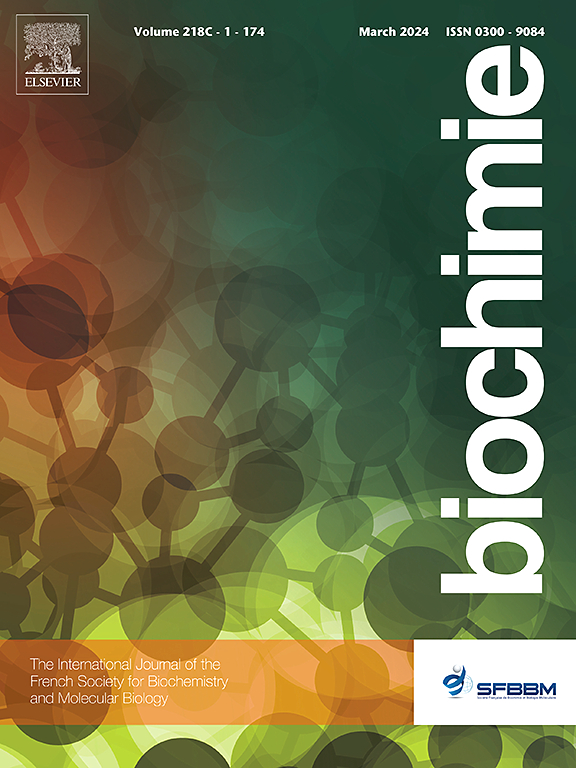Development and evaluation of a new affiprobe that targets HER 3 positive cells using protein engineering
IF 3
3区 生物学
Q2 BIOCHEMISTRY & MOLECULAR BIOLOGY
引用次数: 0
Abstract
Engineered affiprobes that detect a specific target by generating a target-dependent signal, play an important role in biomedical sciences such as breast cancer monitoring. In this study, a new bioluminescence affiprobe consisting of an HER3-binding affibody and a bioluminescent protein, C-SRLc8, a thermostable variant of Renilla luciferase has been developed. The bioluminescent affibody, called C-SRLuc8‒Z08699 was expressed in the Escherichia coli and purified by affinity chromatography. The suitability of the new affiprobe to detected HER3 positive cells was evaluated. It was found that the new affiprobe allowed the detection of HER3 expressing cells with a detection limit of 14578 cells per 200 μl assay volume and a working range of 14000–50000 cells. The new affiprobe can be used for detecting, studying and monitoring the HER3-expressing cells using a luminometer in fast and inexpensive assays.
利用蛋白工程技术开发和评价一种靶向HER 3阳性细胞的新亲和物。
通过产生目标依赖信号来检测特定目标的工程修饰物在诸如乳腺癌监测等生物医学科学中发挥着重要作用。在本研究中,开发了一种由her3结合的附着体和一种生物发光蛋白C-SRLc8组成的新的生物发光粘附物,这是一种耐热的Renilla荧光素酶变体。在大肠杆菌中表达了C-SRLuc8-Z08699,并通过亲和层析纯化了该生物发光粘附体。评价了新粘附物检测HER3阳性细胞的适用性。结果表明,该探针可检测到表达HER3的细胞,检测限为14578个细胞/ 200 μl,工作范围为14000 ~ 50000个细胞。新的粘附探针可用于检测、研究和监测her3表达细胞,使用光度计进行快速和廉价的检测。
本文章由计算机程序翻译,如有差异,请以英文原文为准。
求助全文
约1分钟内获得全文
求助全文
来源期刊

Biochimie
生物-生化与分子生物学
CiteScore
7.20
自引率
2.60%
发文量
219
审稿时长
40 days
期刊介绍:
Biochimie publishes original research articles, short communications, review articles, graphical reviews, mini-reviews, and hypotheses in the broad areas of biology, including biochemistry, enzymology, molecular and cell biology, metabolic regulation, genetics, immunology, microbiology, structural biology, genomics, proteomics, and molecular mechanisms of disease. Biochimie publishes exclusively in English.
Articles are subject to peer review, and must satisfy the requirements of originality, high scientific integrity and general interest to a broad range of readers. Submissions that are judged to be of sound scientific and technical quality but do not fully satisfy the requirements for publication in Biochimie may benefit from a transfer service to a more suitable journal within the same subject area.
 求助内容:
求助内容: 应助结果提醒方式:
应助结果提醒方式:


